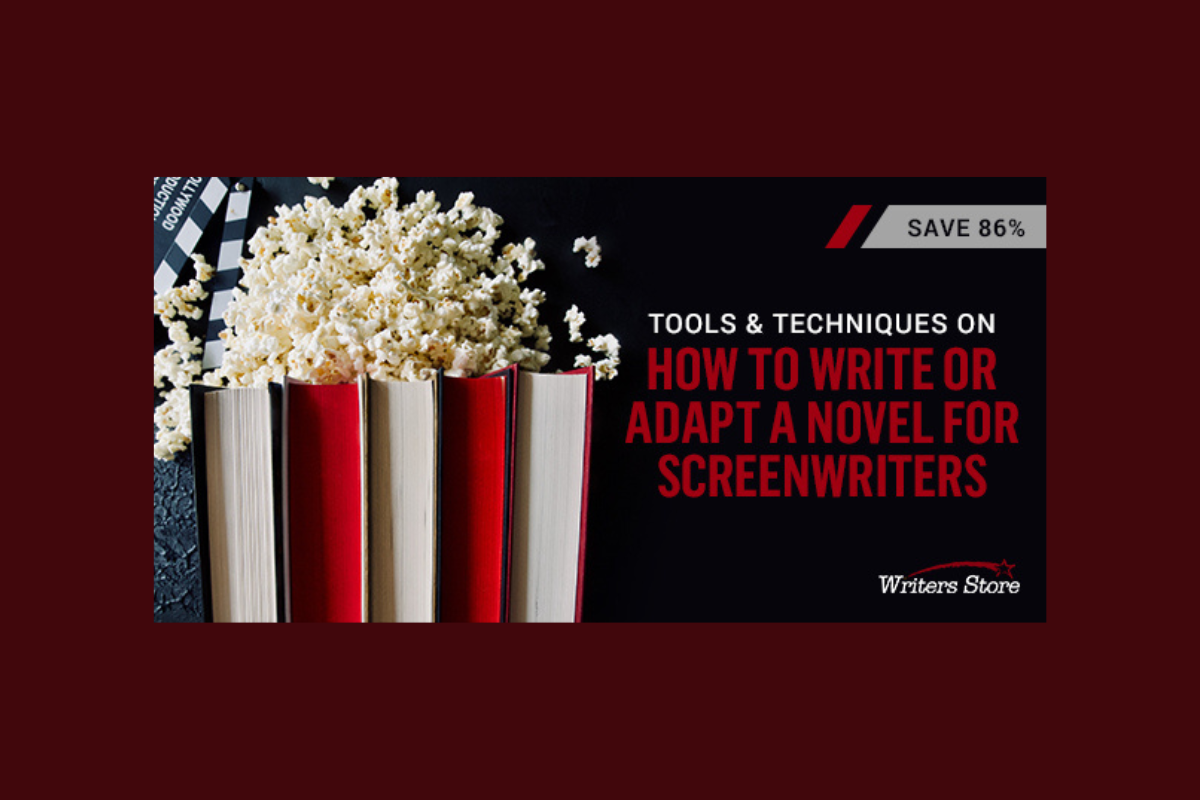No B.S. for Screenwriters: Changing the Way You Read
Daniel Manus gives you the no-holds-barred truth and tools you need to succeed as a screenwriter, and help you see Hollywood and their craft from a different perspective – the executive perspective.
Having worked as an intern, an assistant, an executive, an independent producer, and a script consultant, I believe I can shine the light on this elusive business in a different way that hopefully will help you realize what you need to do to get ahead. It’s my hope that this column will give you the no-holds-barred truth and tools you need to succeed as a screenwriter, and help you see Hollywood and their craft from a different perspective – the executive perspective.
Whether that means how to connect with an executive (and how not to connect), how to write to grab their attention (and keep it), what the outlets are for screenwriters outside of Hollywood, how to increase your chances of success at different events, and how executives read a script, we’ll go through it all – and we’ll do it with humor and honesty.
I don’t pull any punches and I don’t sugarcoat. But I love writers and I want you all to be as successful as you can be – and make your scripts as strong as they can be. So hopefully this column will help you better your own projects or your plans on how you’re going to break into the business - and stay there.
I have been writing since I was old enough to hold a crayon. I used to write short stories and at the age of nine, I wrote a novel. Okay it was 27 pages, but for a nine-year-old, that might as well be War and Peace. And thankfully, years later, my parents didn’t scoff at the idea of joining the whoredom that is Hollywood. I moved to L.A. after college – along with every prom queen, theater geek, techie, writer and A-type personality from towns around the world. Due to bad timing, I was unable to find a job as a P.A. on a TV show, so I took a job as an assistant at an independent film production company and began working my way in and up.
I often suggest that writers try and get an assistant job in the industry, especially in a development exec, manager, or agent’s office because you will learn a side of the craft of screenwriting that you can’t get from writers groups, classes, or sitting in Starbucks strapped to your laptop. It’s a viable and very productive way to break into the business because even if you only spend a couple years as an assistant or junior exec, you will make enough contacts to send your script to everyone in town without needing an agent or manager, or you will be able to land one much easier.
I never forget that I originally moved to LA to write and that’s what always connects me to screenwriters, but being in development taught me my strengths and weaknesses - not only when it comes to story and talent, but also in regards to self-motivation, self-generation of material, setting deadlines for myself, and bringing my ideas from my head to the page. And I would offer an unscientific guess that 40-50% of development executives originally came to L.A. to write. Being in development affords us the opportunity to be creative, write treatments and help write scripts, without having to depend on our ability to self-motivate to pay our rent.
There are a number of things executives specifically look for in material, and a certain way of thinking while they read. When I was interning, and even for the first few years as an assistant and junior executive, I was still looking at scripts as a writer – because that’s what I considered myself. While reading, writers have a tendency to ask the following questions - “Is this a better line or scene than I would have thought of?” “Is this a better idea than the ones I’m working on?” and “Does this make me feel better or worse about my own talents?” It was more about jealousy, dominance or self-re-assurance than it was true analysis.
But somewhere along the way…that changed. Now, I can appreciate both sides of the equation because not only do I understand what the writer was thinking when they wrote it, but I know how to make it better and make it more sell-able. Thinking like an exec opened my eyes to how to really evaluate scripts and read them in a different light. The real shift in perspective from writer to executive revolves around the three easy questions executives ask – ‘Can I sell it?’ 'When can I sell it?' 'Who can I sell it to?'
‘Can I sell it?’ means - is it commercial? What demographic is it for and is that demo big enough to matter? Is it what the marketplace is favoring right now? Is it what buyers are looking for? Can it sell internationally? Is it something that is already in development elsewhere? Can I picture the poster? The trailer? Is there a great logline and tagline?
‘Who can I sell it to?’ – Are there enough places out there looking for this type of material or is it a one-stop shop? Is it something that only one specific company would go for or is it broad? Can I package it? Can I get an actor or director interested in this material? Can I sell agents on why it would be a good project for their clients?
‘When can I sell it’ – How many notes and drafts is it going to take to get it to a sellable place? How much work still needs to be done? Is it the genre that people are looking for at that moment or are we going to have to wait for the next cycle? Is it a prestige Oscar movie or a holiday movie where the release date will really matter?
Some might argue that looking at a script through these glasses ruins the creative aspects of writing, and when I looked at scripts as a writer - I believed that too. But actually, it allows you to see the script from all different angles, resulting in the ability to find a way to improve story or character or dialogue, etc.
Now you shouldn’t worry about all this stuff while writing your first draft! But before you start pitching and submitting your script, you should try to go back and look at it with a different pair of eyes – those of an executive.
Danny Manus is an in-demand script consultant and founder of No BullScript Consulting, and was ranked in the Top 15 “Cream of the Crop” Script Consultants in 2010. He is the author of No B.S. for Screenwriters: Advice from the Executive Perspective. Danny shares notes, tips, lessons, anecdotes and information that will hopefully improve your writing, enlighten you about parts of the business that aren’t talked about, lessen the number of notes you get in YOUR margins, and help you further understand what breaking into this business and staying here really entails. Twitter: @DannyManus







